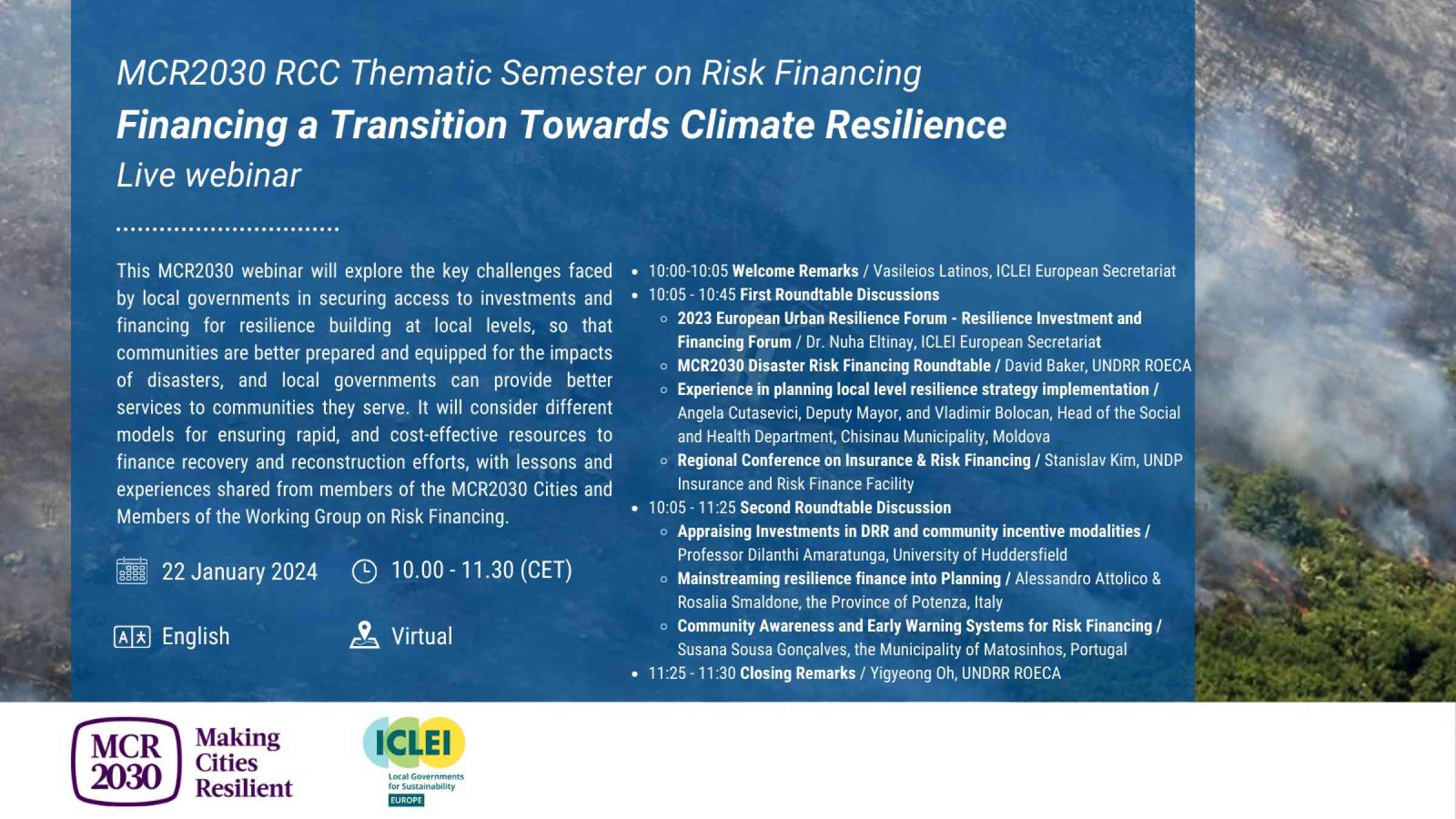MCR2030 RCC thematic semester on Risk Financing: “Financing a Transition Towards Climate Resilience”

Online on Monday 22 January 2024 at 10:00 - 11:30 CET
Register here
As part of the MCR2030 RCC thematic semester on Risk Financing, this webinar will address the key challenges faced by local and regional governments in securing access to investments and financing for resilience building at local levels, so that communities are better prepared and equipped for the impacts of disasters, and local governments can provide a better service provision to the communities they serve. Furthermore, it will support a better understanding of different models for ensuring rapid, and cost-effective resources to finance recovery and reconstruction efforts.
During the First Roundtable Discussions, an overview of the 2023 European Urban Resilience Forum (EURESFO23) Resilience Investment and Financing Forum will be provided, indicating outputs from the MCR2030 Disaster Risk Financing Roundtable, and discussions on Facilitating Climate Adaptation through Risk Insurance: Community led Decision Making Process for Urban Resilience. Experiences on planning local level resilience strategy implementation will also be provided by the City of Chisinau, Moldova. This will be followed by sharing the key messages from the Istanbul Regional Conference on Insurance & Risk Financing by UNDP.
During the Second Roundtable Discussions, research findings on appraising investments in DRR and several options of community incentives for resilience building will be shared by the University of Huddersfield. As Resilience Hubs of MCR2030, the Province of Potenza will share experiences on mainstreaming resilience finance into planning, and the Municipality of Matosinhos will tell us about the role of Community Awareness and Early Warning Systems (EWS) in acting in anticipation or early after a disaster can save lives and livelihoods, protect public finances and safeguard development gains.

